
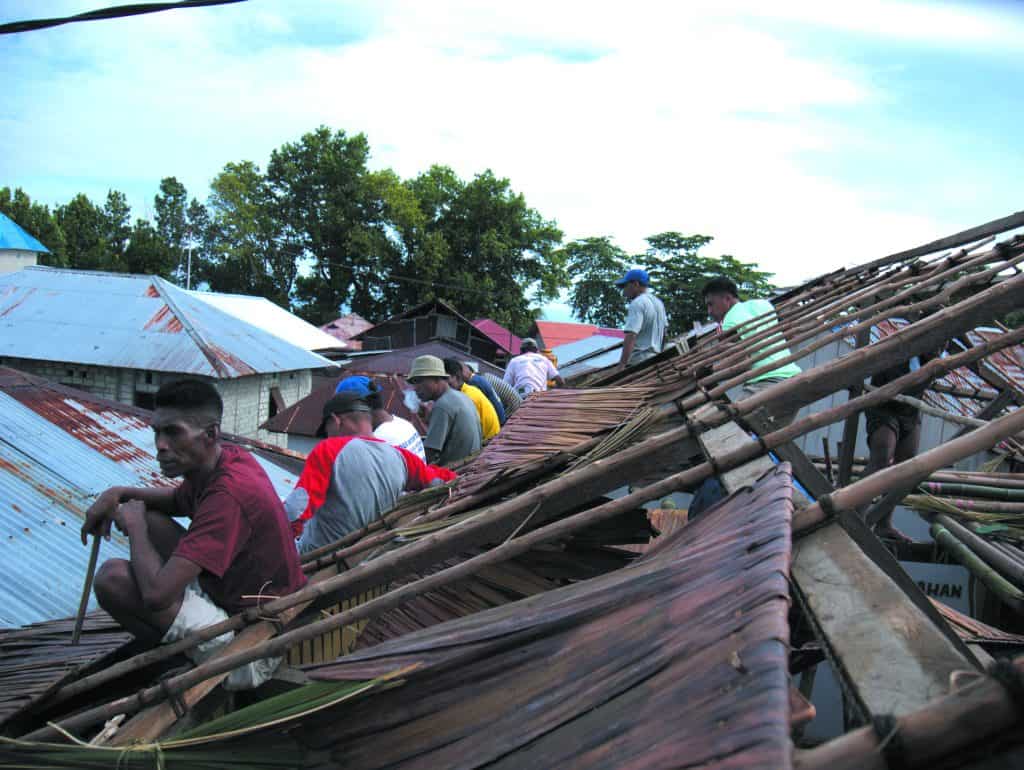
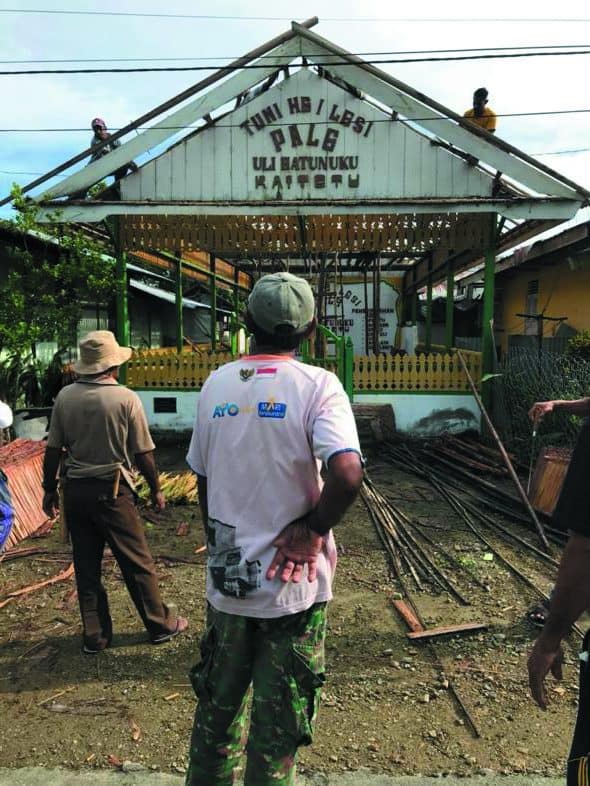



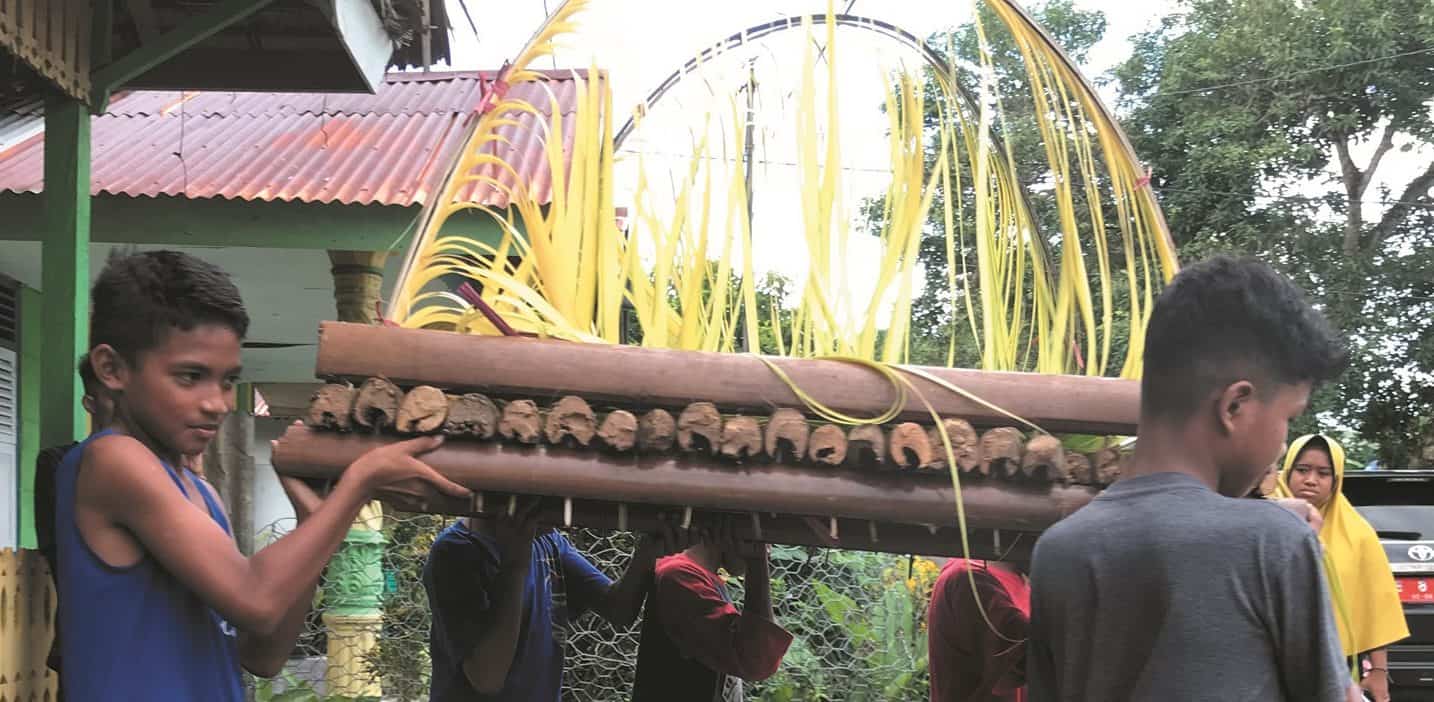
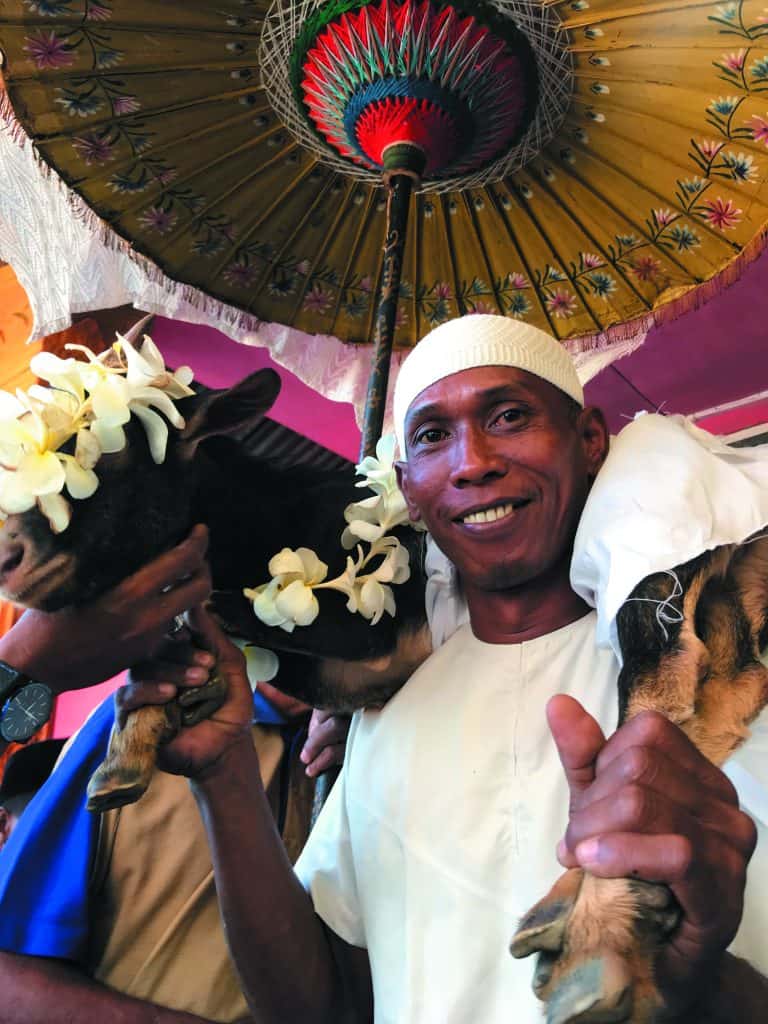
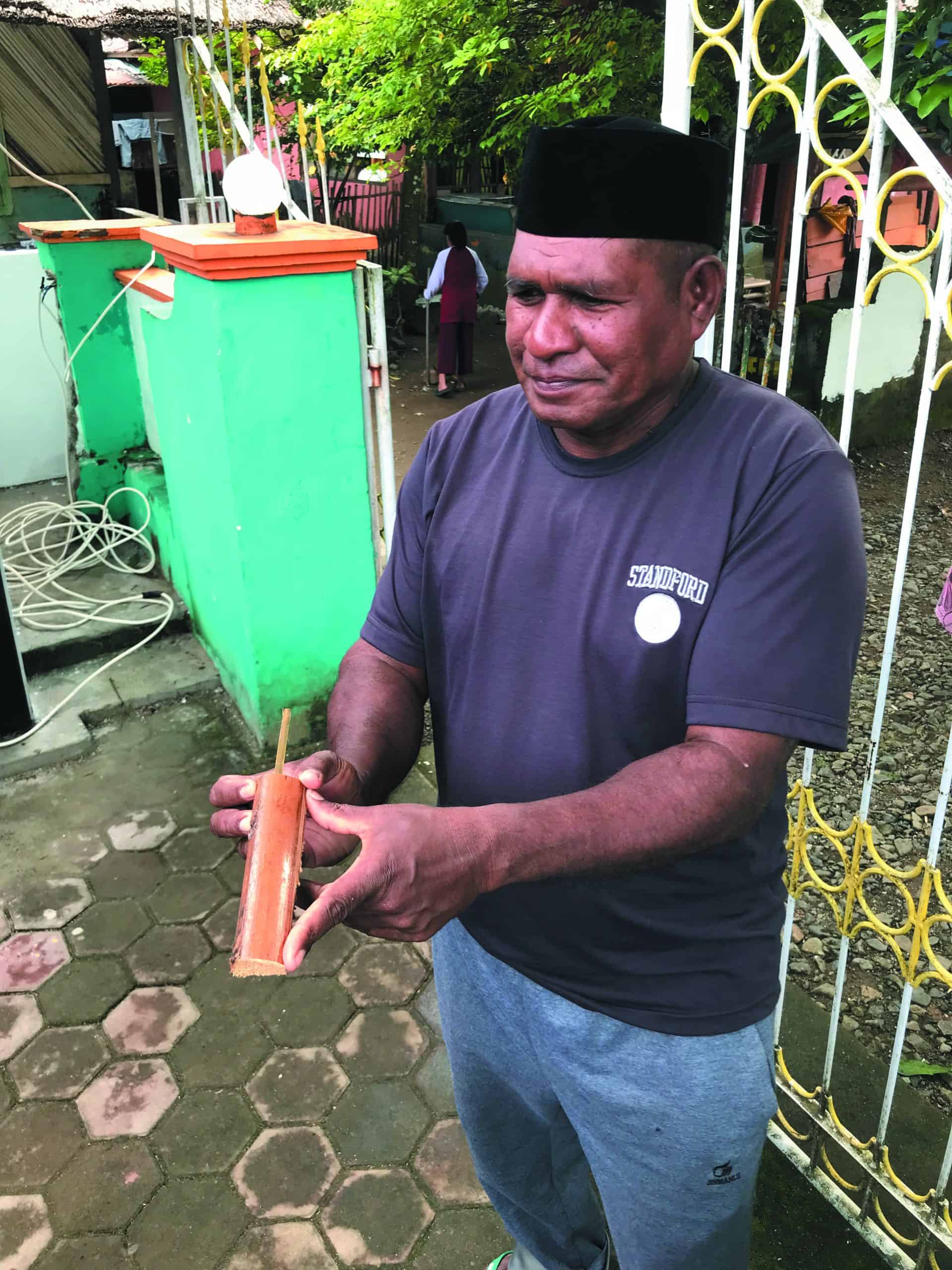

Carpentry tools, such as the knife, which the Tukang 12 always carry over their shoulder, are an integral part of their identity. Upon being appointed, a new Tukang is seated in the middle of the mosque with three carpentry instruments, often a knife, a chisel, and a hammer, according to his specialisation. Before the introduction of metallic chisels, planes, and other more modern instruments, carpentry tools used by the Tukang 12 were limited to a knife, an adze and an axe. Measurements are calibrated to the Tukang Ayoul’s body, mainly the distance between his hands (depa, about 1,5 m) and between his index finger and his thumb (jingkal), multiplied as needed on a piece of wood. This gauge is called Toti. Even today, using modern insinstruments such as measuring tapes or theodolites to measure the mosque is not permitted.

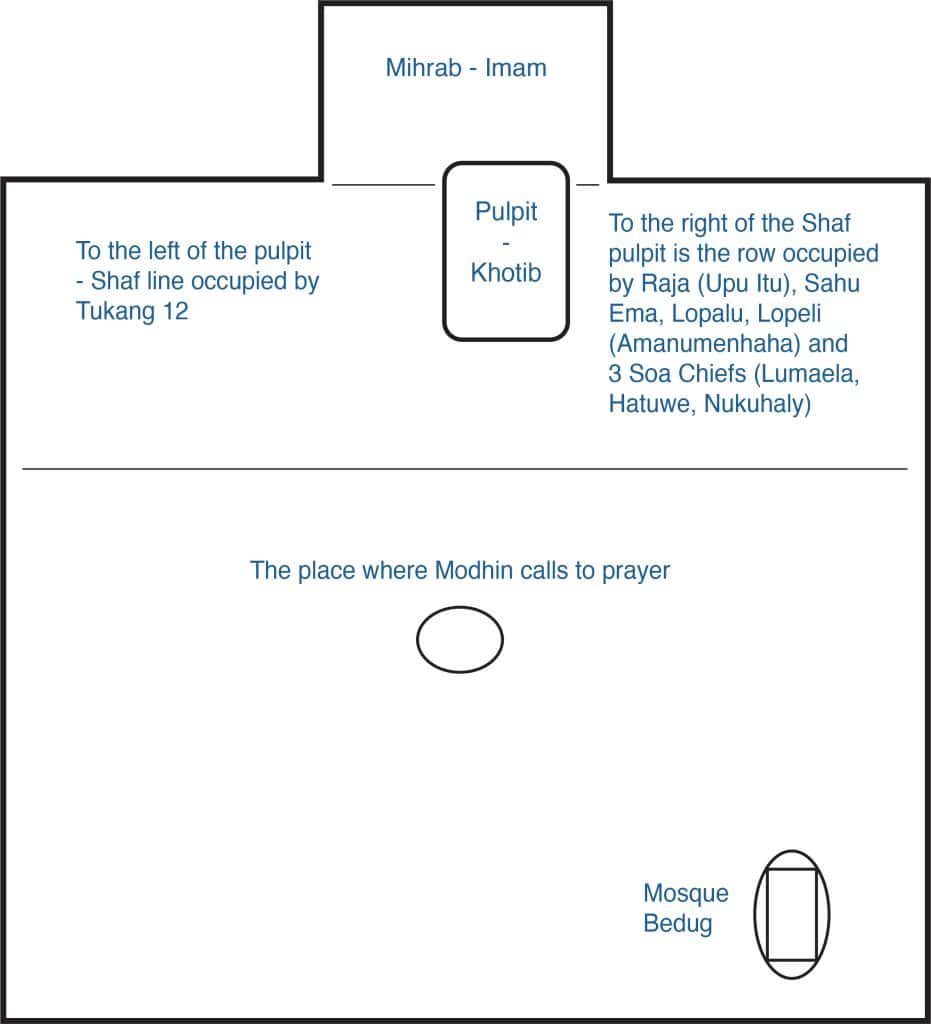
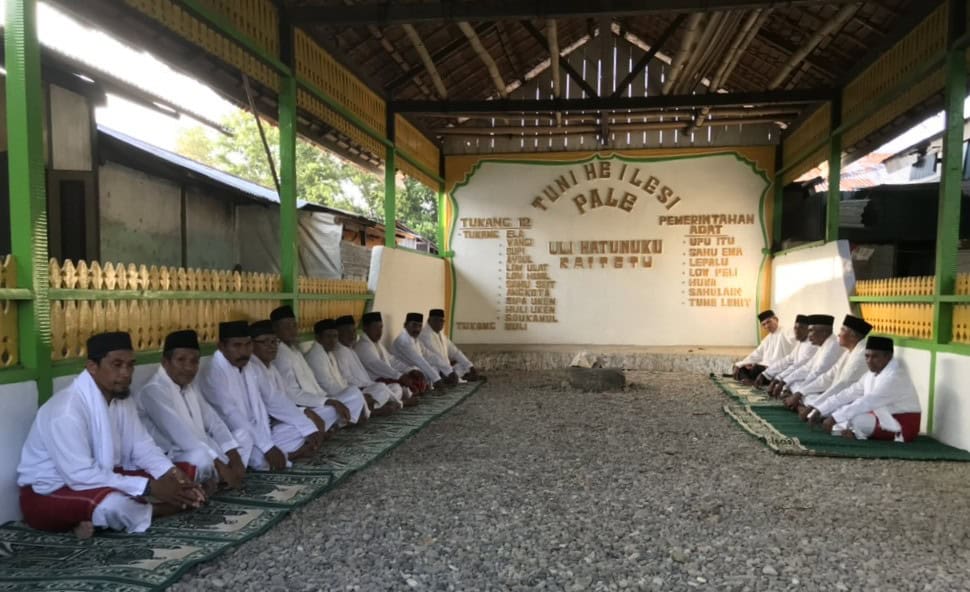
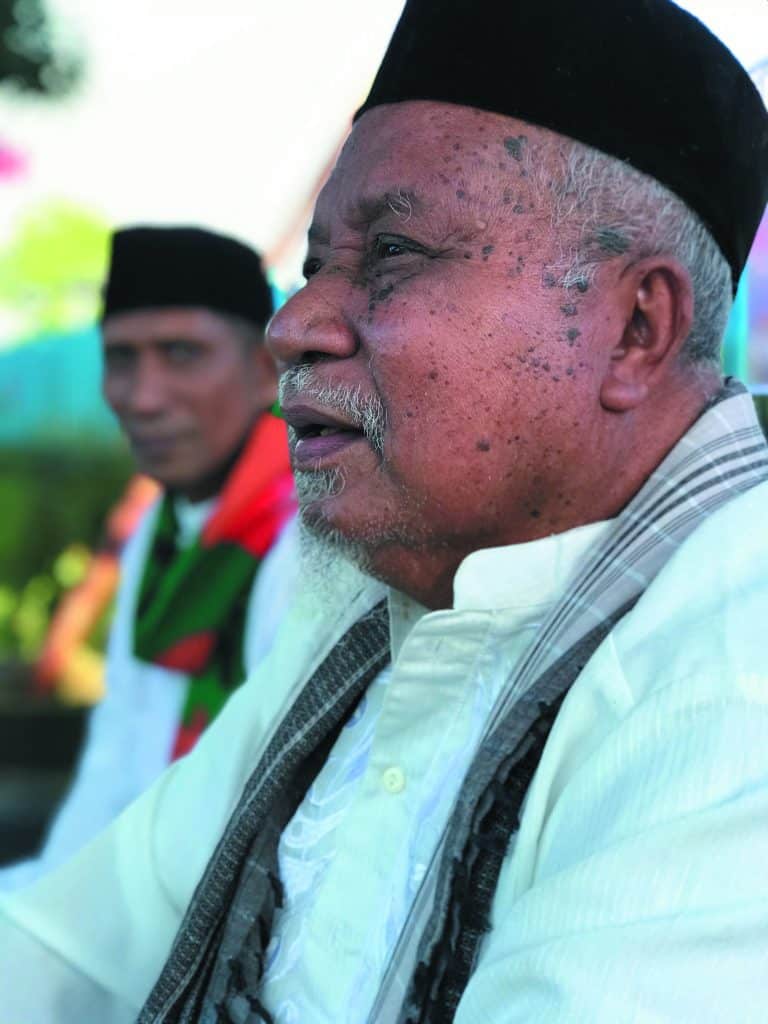
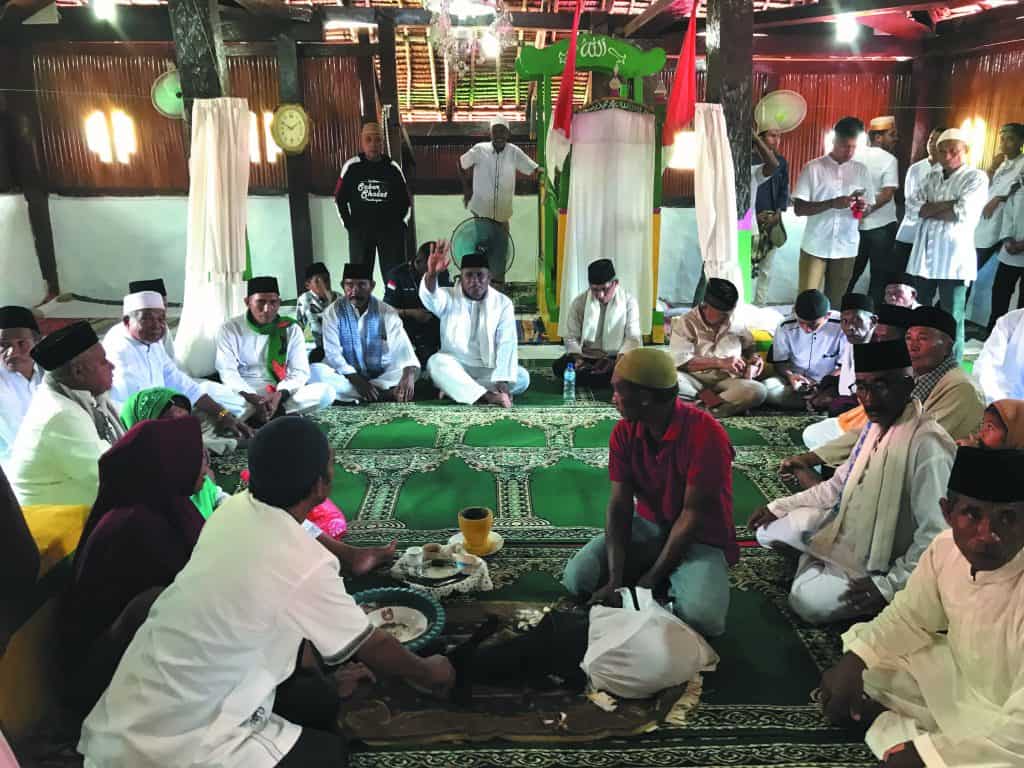
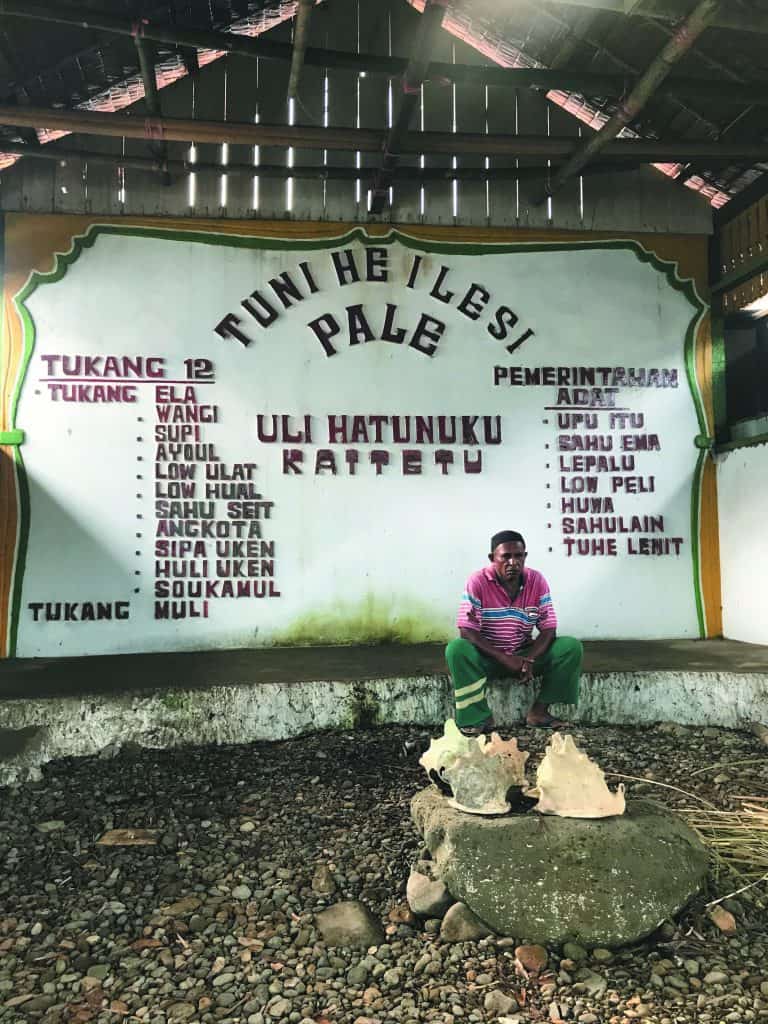
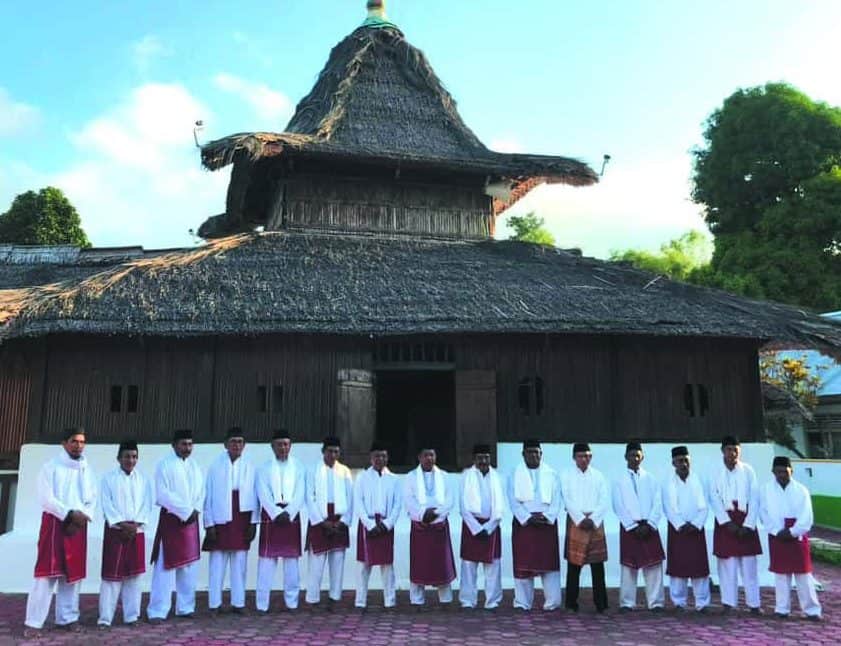
Tukang Ela comes from the Lumaela clan and serves as the chairman of the Tukang 12. He is the primary coordinator of the carpenter’s council for ceremonies and work. He negotiates whether a project will be undertaken and determines the auspicious date for the work (kutika). Once the decision is made, it is communicated “upwards” to the King through intermediaries such as Tukang Sahu Seit or Tukang Muli. The King’s approval is then conveyed “downwards” through the customary government (Sau ema or Lopeli) to Tukang Ela. This communication protocol is called “Sou Aka’a Sou Akulu” (rising voice and falling voice).
Tukang Wangi hails from the Hatuwe clan. He is an expert in circumcision in the village and leads the circumcision ceremony, performing the ritual with prayer water, and conducting the circumcision itself. Despite the common use of laser techniques today, families still seek the blessing of Tukang Wangi before circumcising their sons. His role is also crucial in starting restauration works, as he is the Tukang who first cuts the sacred roof or Pamali roof (Aha poput or Apoput).
Tukang Low Ulat comes from the Hatuwe clan. His function is more military in nature, serving as a war chief. Even though this function is no longer active, Low Ulat is responsible for performing pasawale (enunciation of names, sometimes ancestors names, using traditional language) ceremony duties during the coronation of the King of Kaitetu.
Tukang Low Hual comes from the Hatuwe clan. He serves as the council general advisor and functions as a provider of information to the villagers.
Tukang Sahu Seit comes from the Nukuhaly clan and oversees the coordination of traditional affairs and more secular state affairs, such as security.
Tukang Angkota comes from another clan. While rituals are performed jointly with other Tukangs, such as the blessing of healing water, Tukang Angkota is specifically responsible for organising offerings and rituals in mosques and customary halls (baileo). On normal days, he is also responsible for healing rituals and exorcism ceremonies involving offerings and animal sacrifices, especially chickens.
Tukang Sipa Uken comes from the Lumaela clan and plays another important role in the institution. He is responsible for checking and ensuring that construction work complies with customary rules and protocols. He evaluates the quality of the work and provides approval or recommendations for improvements. When he identifies errors, he ceremoniously states to Tukang 12 “this is wrong”.
Tukang Muli comes from the Lumaela clan and serves as the chief spokesperson for the Tukang 12 organization. He conveys messages to the King (Upu Itu), through the traditional government, which then passes the messages back to the Tukang 12. Besides his duties as a messenger, he has other functions such as praying for the mosque roof replacement work at the beginning and end of the restauration process. During other duties, such as the sacrificial ritual on Eid al-Adha, Tukang Muli also acts as a prayer reader for the sacrificial animals when they are about to be taken out of the king’s house and from the Wapauwe Old Mosque.